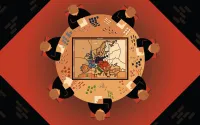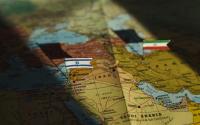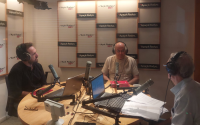Common Dreams / Published on Wednesday, October 15, 2003 by Reutersby Peter Graff LONDON - War in Iraq has swollen the ranks of al Qaeda and galvanized the Islamic militant group's will, the International Institute for Strategic Studies said on Wednesday in its annual report.
The 2003-2004 edition of the British-based think-tank's annual bible for defense analysts, The Military Balance, said Washington's assertions after the Iraq conflict that it had turned the corner in the war on terror were "over-confident." The report, widely considered an authoritative text on the military capabilities of states and militant groups worldwide, could prove fodder for critics of the U.S.-British invasion and of the reconstruction effort that has followed in Iraq.
Washington must impose security in Iraq to prevent the country from "ripening into a cause celebre for radical Islamic terrorists," it concluded. "Nation-building" in Iraq was paramount and might require more troops than initially planned.
"On the plus side, war in Iraq has denied al Qaeda a potential supplier of weapons of mass destruction and discouraged state sponsors of terrorism from continuing to support it," the report said.
"On the minus side, war in Iraq has probably inflamed radical passions among Muslims and thus increased al Qaeda's recruiting power and morale and, at least marginally, its operating capability," it said.
"The immediate effect of the war may have been to isolate further al Qaeda from any potential state supporters while also swelling its ranks and galvanizing its will."
FAILED STATES
Magnus Ranstorp, terrorism expert at Britain's St Andrew's University, told Reuters the report's findings would drive home the importance of rebuilding Iraq and other conflict zones.
"Military planners and the law enforcement community are fully aware of the consequences of failed states," he said.
"I think it's probably worthwhile for politicians to keep in mind our responsibility to provide sustained and long term reconstruction in war-torn countries, so they don't fly back into anarchy or become incubators of terrorism."
Washington blames al Qaeda, led by Osama bin Laden, for the 2001 U.S. airliner hijack attacks which killed 3,044 people.
A crackdown had netted some al Qaeda leaders and deprived al Qaeda of bases in Afghanistan. But it also "impelled an already highly decentralized and evasive international terrorist network to become even more 'virtual' and protean and, therefore, harder to identify and neutralize," the IISS report said.
It said 18,000 veterans of al Qaeda's Afghan training camps were still probably operating worldwide "with recruitment continuing and probably increasing following the war in Iraq."
Al Qaeda leaders, including bin Laden, are mostly still at large and continue to incite followers over the Internet and through pronouncements on Arabic-language television.
Because of its extreme religious world view, al Qaeda "cannot be tamed or controlled through political compromise or conflict resolution," the report said.
But Western countries need to do more to reach out to Muslim countries and their own Islamic minorities to "eliminate the root causes of terrorism," especially after the Iraq war "almost certainly further alienated Islam from the West."
Efforts should be redoubled to resolve local conflicts, such as the Palestinian-Israeli conflict, so regional radical groups such as Hamas do not fall into al Qaeda's embrace, it said.






